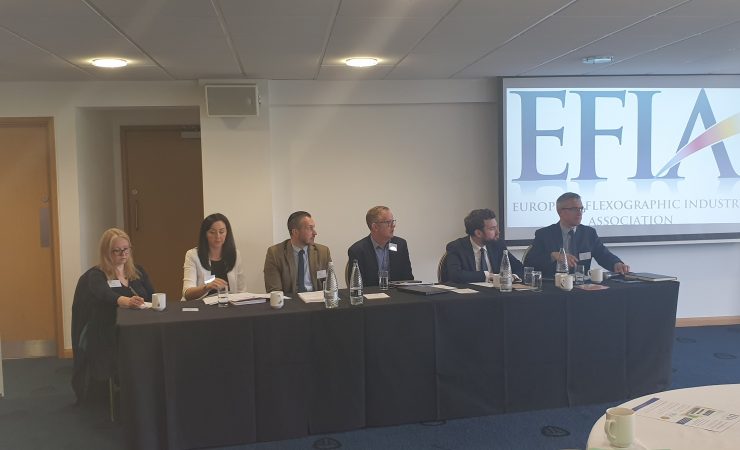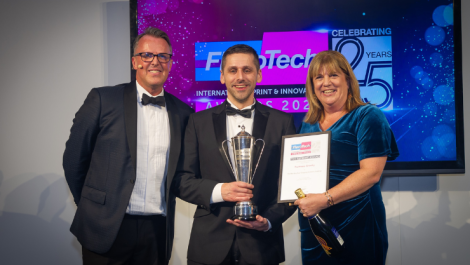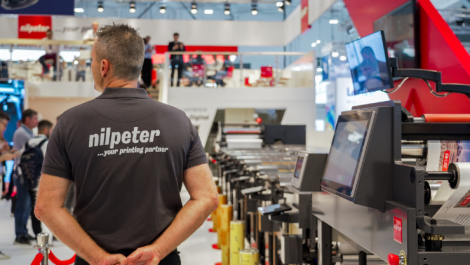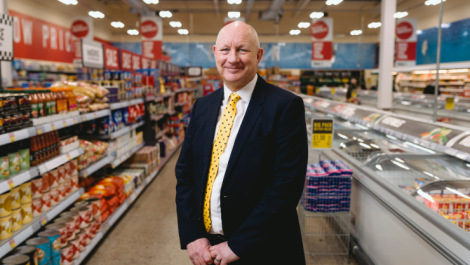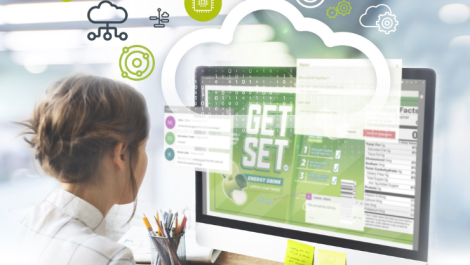A second breakfast meeting held by EFIA continued the discussion on where the flexo industry sits in the debate on packaging sustainability. Attendees were gathered to Elland Road, the home ground of Leeds United Football Club on 14 June. Michal Lodej attended.
With plastic pollution continuing to dominate the headlines as well as grabbing attention in Whitehall, it is important for the industry to be informed of and prepared for whatever steps the government may take to tackle this environmental crisis. As plastic is increasingly attacked, its many benefits ignored.
Ben Mitchell from the Retail Institute chaired the panel discussion. Joining him on the panel were William Walter, managing director of a communications agency Bridgehead, Mark Hawkins, managing director of Smurfit Kappa inspirepac, Dave Daniels sales director at National Flexible, Rachel O’Connell business development director at Key Recruitment, and Sarah Greenwood sustainable packaging and plastics consultant.
Mr Mitchell began the discussion by asking the panel what can be done to help educate the public so that all packaging materials are used responsibly, and disposed of properly. He said, ‘Consumers have a strong view on packaging today and its detrimental effect on the environment, but with the right design it has a very strong role of protecting of the environment.’
Mr Walter responded, ‘I read an interview with the chief executive of a company which delivers fresh fruit and veg, he was desperate to reduce the company’s carbon foot print, and one of the best ways to do this would be to replace its cardboard delivery boxes with plastic ones. But his customers wouldn’t tolerate this despite it being better for the environment, because it is plastic.
‘I think this is telling, educating the consumer about this is difficult and there are complex arguments. If you watch Blue Planet, there’s a simple message, to stop plastic going into the ocean we should be using less. But there is naivety here whereby most of the plastic in the ocean is coming from third world countries where streams and rivers are used as a waste disposal system.’
Mr Hawkins continued, ‘Packaging is a service to get a product to a consumer, and it has to be sustainable. In paperboard we have a slightly better solution in some instances, but it should be a war on all waste, and a drive to be more sustainable. It starts with all of us, starts with me, and my behaviour. However, it is still complicated about what can and can’t be recycled so there is still more work to be done. The initiative on carrier bags has worked but your fooling no one if you think we can live completely without plastic.’

The event gathered a strong attendance from the industry
Trust me I’m a printer
Mr Daniels worried that those within the industry would not be trusted to be impartial, ‘We instantly come to a roadblock because we sell plastic packaging, so consumers will naturally think we are biased, but as a printer and converter we can print on anything we want. But more changes need to come from government, we are all restricted by our kerbside collection, and if plastic isn’t collected roadside the consumer has to do it themselves, the consumer can’t work this out sometimes.’
Ms O’Connell emphasised the importance of looking at this from the point of view of the consumer, ‘We know what should be done from recycling point but as a consumer it’s not always easy. What is never mentioned is the alternative to living with plastic, this reality has a massive influence and no one talks about this. We can use smart phone to scan barcodes for using with health plan apps, why not use this for packaging, with the information about how to recycle it?’
Litter is an obvious way for the industry to direct their anger towards. Litter is still prevalent in society and a tougher approach towards litter could go a long way, and really should be the focus of public anger.
Mr Daniels gave an example of litter that he has to deal with every single day, ‘In front of our office building we have visitor spaces for people who want to see the battlefield next to our premises. Youths like to meet there in the evenings, to smoke and drink, and every time we arrive in the morning it is completely covered in litter. Most mornings it takes around 45 minutes to clean up. There is a bin there, but it’s not used, we have CCTV installed and have offered the footage to the police, but they’re not interested in
the slightest.
Ms Greenwood said, ‘We need an influencer, a Brian Cox or someone, it needs to be someone in their 30s to make the issue “Rock and Roll”. People need to go out through the media and say “actually packaging has a really important function”. Waste Busters is a charity that talks to children in schools about recycling, school age children have a lot of influence over their parents so that’s who they are targeting. Just like anti-smoking campaigns, you need to get children at a young age.’
Mr Walter stated, ‘It’s an obvious win for the government, if you could clamp down on litter, you can link it to the topic of the environment. It’s easy for Michael Gove to take the position of plastic battering as it helps his popularity rather than sit down an understand the issues, he just thinks, what’s the most popular thing I can do? And then bans plastics straws.’

The breakfast meeting was held at Leeds United Football Club’s home ground, Elland Road
An ageing workforce
Another topic of conversation at the meeting was the issue of recruitment throughout the industry. Ms O’Connell said, ‘You have to look at your own business with an invested interest to understand how behaviours are changed. At one company I helped they had a designer who wanted to get on the road and be a sales person so I got him to go for an interview, but the managing director said “No, he’s great at design” and then they eventually went on to work for someone else. How well do you know your own staff, who are doing the job at the moment but don’t necessarily want to do that forever? How can they progress in
the business?’
Mr Daniels explained his own story, ‘As a business, education is always there for development in individuals. We increase the knowledge base as every individual has some value and you have to use that individual value to the benefit of the company. The right hole for the right peg is vital, the time and effort you put into getting that right is invaluable.
‘I worked my way up from a forklift driver, I was educated internally and was exposed to different parts of the business and that allowed me to progress my career, to the point where now I am a director in the company. If you find someone who is perfect but don’t have the right role for them there and then, bring them in and they can help grow the business in the way you want them to.
Ms Greenwood added, ‘There is no straight path into the industry, and it’s a huge industry and important to the economy, this industry is at the fore front of people minds. But how do we get the next generation in. If you train and develop you will improve your staff and they will be more than worth their value.
‘Packaging training tends to be when they are already in the job; there is soon to be an online Master’s degree at Sheffield University. Three years ago a group at Chester University addressed this issue, and the people initially involved were retailers who backed the group that made up the apprenticeship, along with major packaging producers such as GSK and Nestle. What was formed was a degree level apprenticeship.’
Mr Hawkins had to readdress the balance of ages with his own company, ‘It was brave to bring in 16 and 17 year olds into the business, but it has reaped so many rewards to all of us. We took the view of inviting candidates and parents, in the academy there is an opportunity to learn on the job manage internally.’
Throughout the meeting attendees were invited to give their own thoughts and ask questions of the panel. Many good points were raised, leading to a dynamic conversation on two topics which this industry must meet head on.

